The inspiring life story from the bestselling author of Mindfulness in Plain English.
Bhante Gunaratana Bhante G., as he is affectionately called is one of the most beloved Buddhist teachers in the West.
T his expanded anniversary edition of Journey to Mindfulness includes five new chapters in which Bhante G. reflects on the impact of the tsunami that struck his homeland in 2004 and his subsequent appearance on Larry King Live, his brief experiment in ordaining nuns at his monastery, the loss of family members, and his own aging and infirmity. He provides an inspiring example of what it means to live a life in alignment with the Buddhadharma.
Like the stories of the wisest and kindest of grandfathers. A joy to read.
Sylvia Boorstein, author of Pay Attention, for Goodness Sake
Tremendously inspiring. It both breaks down illusions and over-idealism about Buddhism and gives a vision of how to attain the highest in our lifetimes. An old, humble monk reflecting on his arrogant youth has invaluable lessons for all of us.
Sumi Loundon Kim, author of Sitting Together
Inspirational, charming, and delightfully accessible we are left with the image of a good man who has lived an extraordinary life and that this kind of life is within reach of all of us.
Branches of Light
This plain-English look back at years of an admixture of adversity, humility, and hard-won wisdom tells an engaging story that non-Buddhists can appreciate as well as Buddhists.
Publishers Weekly
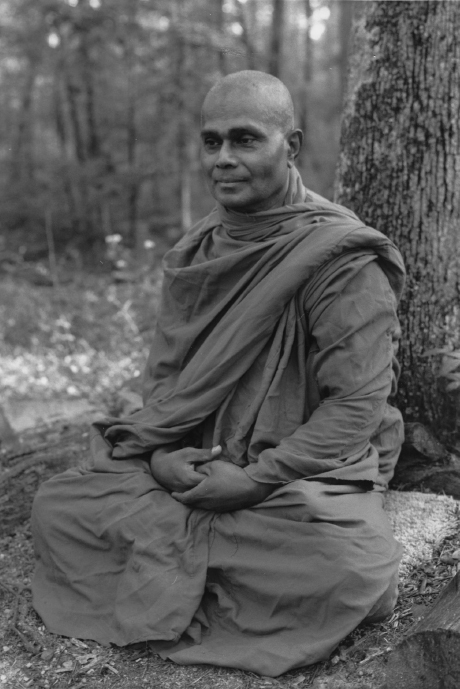
Mid-1990s. In the forest at Bhavana Society, West Virginia.
Preface
 WRITING AN AUTOBIOGRAPHY might seem like an inappropriate exercise for a bhikkhu, a Buddhist monk, since we bhikkhus strive to eradicate the ego, not glorify it. Through meditation and mindfulness we want to let go of attachments and practice selflessness. Why then would I write a whole book about me?
WRITING AN AUTOBIOGRAPHY might seem like an inappropriate exercise for a bhikkhu, a Buddhist monk, since we bhikkhus strive to eradicate the ego, not glorify it. Through meditation and mindfulness we want to let go of attachments and practice selflessness. Why then would I write a whole book about me?
The idea, oddly enough, came from my meditation retreats.
Whenever I teach a retreat, I invite attendees to write questions on slips of paper and put them in a box. Each evening, after my formal Dhamma talk, a lecture about the essence of the Buddhas teachings, I pull a few of the slips out of the box, one by one, and answer whatever question is there.
Usually people want to know about meditation: how to keep up the momentum theyve built at the retreat; what to do when they are so agitated they cant sit still; how to practice if they dont have a good teacher nearby. Sometimes, though, someone asks a question about my life:
How long have you been a monk?
What was it like, growing up in Sri Lanka?
How do you maintain monastic discipline in this world full of temptations?
When I answer those kinds of questions, I tend to ramble. I tell stories about my life and people seem to enjoy them. The meditation hall, usually a silent place, fills with laughter. Often the students say, Bhante, you should write your autobiography!
Ive read a few life stories of spiritual men and women, and in them, it always seems like miraculous, wondrous things happen to the main character. Sometimes, the main character may even be the one performing miracles.
Reading these amazing stories, one might conclude that spiritual people are somehow very different from regular people. As for me, I can claim no miracles. I have been a simple person all my life. Early on I learned that if I worked hard, I would usually get good results nothing supernatural about that. In many ways my life is probably much like yours.
And so I was hesitant to write the book my students were suggesting. I worried that it would appear to be an exercise in ego. I was afraid people might think I had grown vain and self-absorbed in my old age.
Not necessarily, a friend told me. You might be able to do some teaching by telling your own story. I thought about that. I thought about my life and realized that, yes, this might indeed be an opportunity to show how the Buddhas teachings can be an extraordinary guide, leading a simple person like myself to a life of great happiness, great fulfillment.
As a monk, I have dedicated my life to protecting and maintaining the Buddhas teachings. I have found that because of that, the Dhamma has protected and maintained me as well. Thats what I have learned in my seventy-five years. And thats the essence of what I want to share with you in all these rambling stories about my life.
For example, I can say sincerely that whenever I was arrogant in my life, I suffered a great deal. As a young man in monks college, I spied on other students, I gossiped, I was always looking for others faults. And because of that, I was miserable.
In fact, Id say that has always been my greatest weakness: finding fault in others. Rising above that defilement even a little bit took many long years, through much trial and error, and even now I occasionally struggle with it. But more or less, Im happy to say, I can now pretty much accept people as they are. And my life (not to mention theirs!) is so much smoother as a result.
By relying on the Buddhas teachings, I have learned slowly to withdraw from conflict rather than charging into it or, worse still, going looking for it. That, too, has made life immeasurably more peaceful.
With the help of the Buddhas teachings and the practice of mindfulness, the greatest change I have made in myself, I think, is that I can easily forgive people now, no matter what they do, and believe me, this skill didnt come easily! I had to work long and hard at it. But my own anger, contentiousness, and judgmentalness were fertile ground for practice. Just because a person becomes a monk, by no means is he immediately free from all defilements of character or empty of worldly concerns. As you will see over and over in this book, even in the supposedly noble world of spiritual work, I encountered in myself and in others petty jealousies, backstabbing, indifference, and cruelty.
When I reminisce now, I can see that all those things that seemed so awful at the time have ultimately led to positive outcomes. All the people and situations that I thought were painful were also teachers pushing me in the direction I was supposed to go, pointing out what I needed to learn to become happy.
In retrospect, I am grateful for the mysterious chain of causes and effects that unfolded in my life, even though many of them felt awful and unlucky at the time. If my father had not been such a strict disciplinarian, I might not have left home to become a monk. If my teachers hadnt punished me so severely, I wouldnt have gone off to missionary school. If I hadnt lost my memory and needed a cure, I might never have taken an interest in meditation. If I hadnt fallen sick working with the Untouchables of India, I wouldnt have left to go to Malaysia. If my visa had been extended in Malaysia, I probably would never have ventured to America. And if things hadnt fallen apart so bitterly at the Washington Buddhist Vihara, I might not have started Bhavana Society. But this has been my life, and I am grateful for all of it.
Even so, it pained me to write about some of these things, to dredge up the memories of old hurts and conflicts. Several times I nearly lost my nerve and withdrew from the plans for this book. In my periods of doubt, I kept remembering the words of Mark Twain: Only dead men tell the truth.

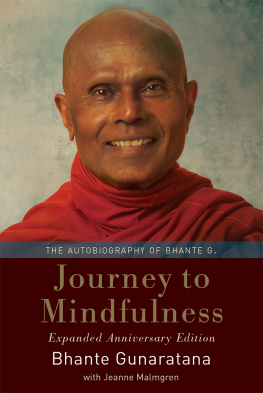
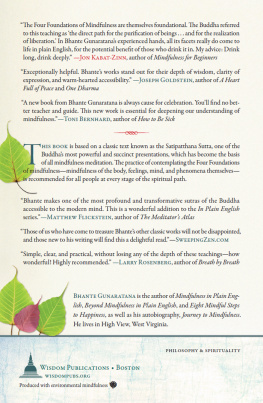
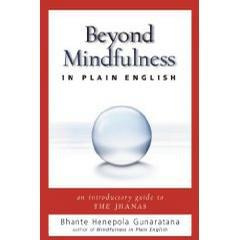

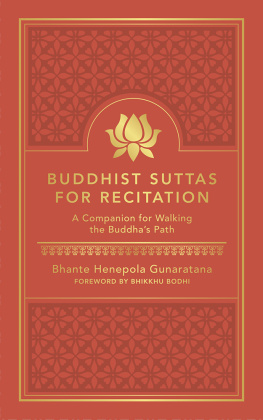
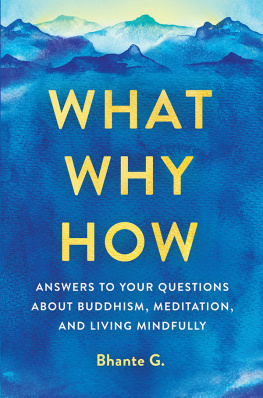
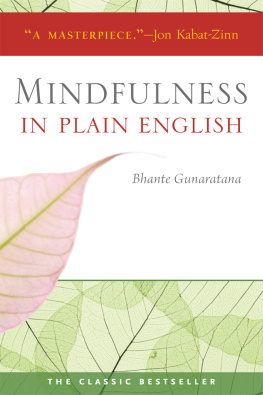
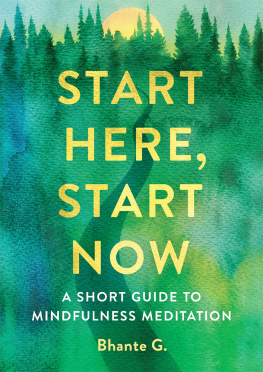
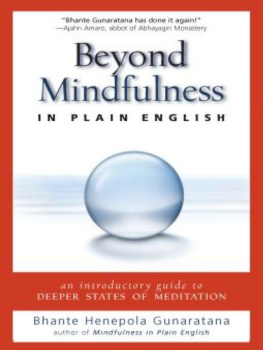
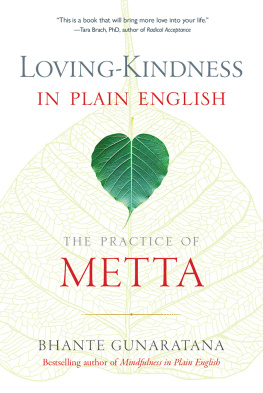
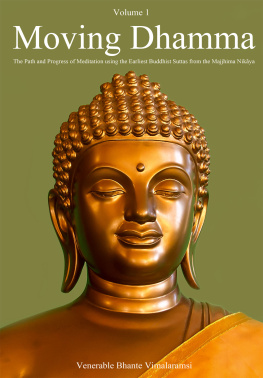


 WRITING AN AUTOBIOGRAPHY might seem like an inappropriate exercise for a bhikkhu, a Buddhist monk, since we bhikkhus strive to eradicate the ego, not glorify it. Through meditation and mindfulness we want to let go of attachments and practice selflessness. Why then would I write a whole book about me?
WRITING AN AUTOBIOGRAPHY might seem like an inappropriate exercise for a bhikkhu, a Buddhist monk, since we bhikkhus strive to eradicate the ego, not glorify it. Through meditation and mindfulness we want to let go of attachments and practice selflessness. Why then would I write a whole book about me?